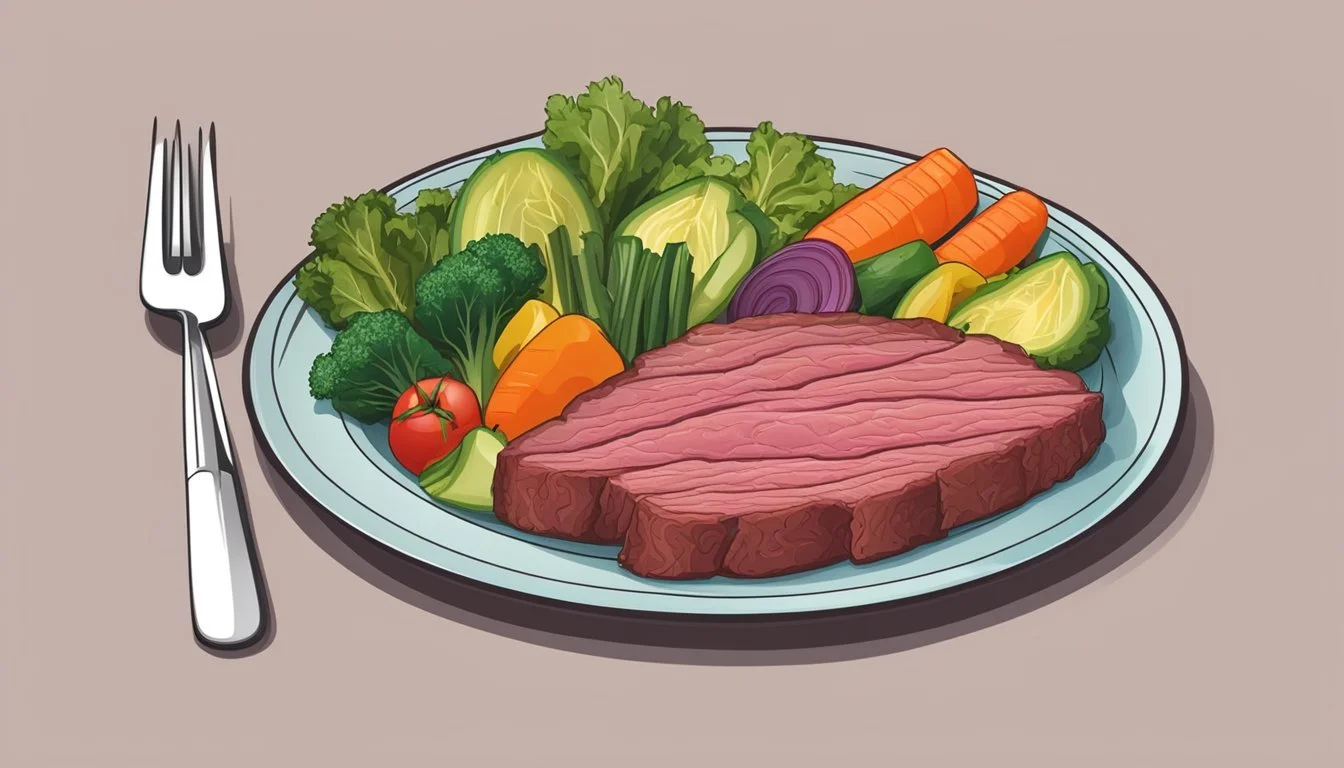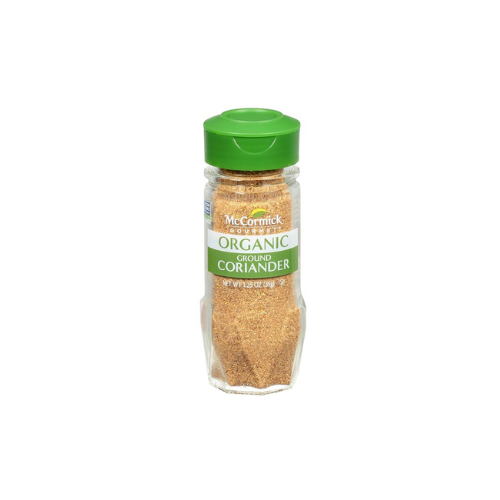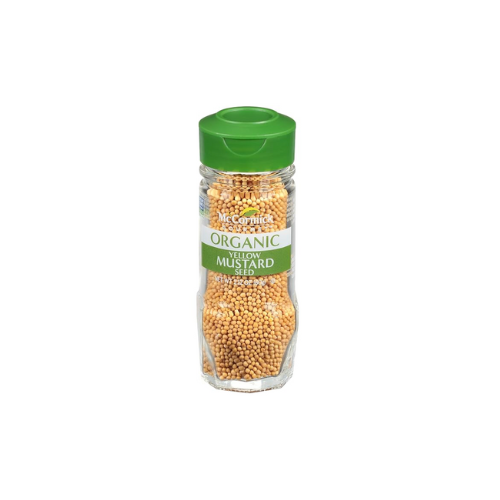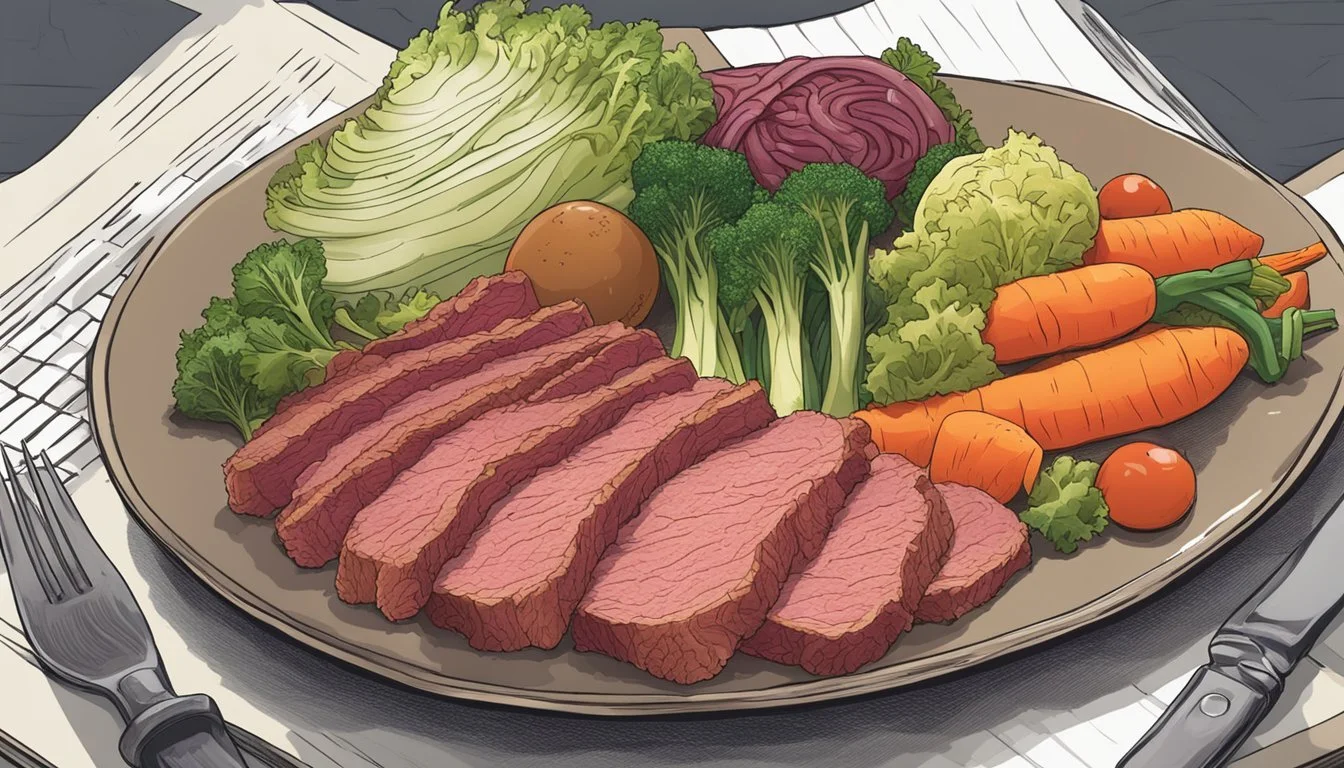Corned Beef Carnivore Diet
Maximizing Health with Single-Ingredient Focus
Corned beef, (What wine goes well with beef?) a salt-cured brisket of beef, is often a point of discussion for those following a carnivore diet. The carnivore diet is an all-meat diet that excludes other food groups, focusing on the consumption of animal products alone. While corned beef is indeed a meat product and fits within the broad category of meats permissible on a carnivore diet, there is a nuanced consideration for its inclusion. The diet prioritizes meat from animals, primarily emphasizing unprocessed products.
Since corned beef undergoes processing, individuals may assess the quality and additives involved in the product. Proponents advise selecting high-quality, minimally processed corned beef. This aligns with the carnivore diet's principle which is focusing on natural, whole foods. When considering corned beef, one should examine labels for any unnecessary additives or excessive amounts of sodium that may deviate from the diet's prescriptive simplicity.
Furthermore, corned beef's nutritional profile can be quite conducive to the carnivore diet under the appropriate circumstances. It provides protein and essential nutrients such as iron, which are key components of a meat-based regimen. Ensuring that the corned beef consumed is as closely aligned with the 'whole food' ethos of the carnivore diet is imperative for those prioritizing this lifestyle's benefits. Hence, one might opt for grass-fed beef and versions of corned beef that lack preservatives, closely adhering to the diet's standards.
Overview of the Carnivore Diet
The Carnivore Diet emphasizes a strict intake of animal products while excluding all plant-based foods, aiming for high protein and fat consumption without carbs.
Fundamentals of Carnivore Diet
The Carnivore Diet is based on the principle of consuming exclusively animal products, effectively eliminating carbohydrates and emphasizing a high intake of protein and fat. It is a form of zero-carb diet where individuals eat meats, fish, eggs, and certain dairy products while avoiding all plant-based foods such as fruits, vegetables, grains, legumes, nuts, and seeds.
Carnivore Diet and Weight Loss
Individuals on the Carnivore Diet may experience weight loss due to the restriction of food groups, particularly carbohydrates, and entering a state of ketosis where fat becomes the primary energy source. Protein has a high satiety level which can reduce overall calorie intake.
Health Benefits and Risks
Health Benefits:
Increased intake of high-quality protein can support muscle maintenance and growth.
Consumption of healthy fats can contribute to satiety and hormonal balance.
Health Risks:
Risk of nutrient deficiencies due to the lack of fruits and vegetables.
Potential increase in cholesterol levels which may impact heart health.
Possible exacerbation of certain chronic diseases such as heart disease and diabetes.
Comparison to Other Diets
The Carnivore Diet stands in stark contrast to plant-based diets which include a wide variety of food groups and emphasize the importance of fruits, vegetables, and grains for fiber and micronutrients. Unlike mixed-food diets that balance animal products with plant-based foods, the Carnivore Diet excludes any carbohydrate source, leaving out fiber and certain vitamins typically found in plant foods.
Corned Beef as Part of Carnivore Diet
Corned beef, being a form of red meat preserved through salting, fits into a carnivore diet which emphasizes animal products. Its inclusion relies on its preparation and inherent nutritional content, yet warrants consideration of its sodium and preservative levels.
Nutritional Content of Corned Beef
Corned beef offers a substantial amount of protein, crucial for muscle repair and growth. It is also rich in essential vitamins and minerals such as iron, which is vital for oxygen transport in the blood, and zinc, which supports immune function. Here's a basic nutritional breakdown:
Protein: A high-quality source for maintaining muscle mass.
Iron: Contributes to the reduction of tiredness and fatigue.
Zinc: Essential for a robust immune system.
Fat Content: Contains both saturated and unsaturated fats.
Sodium: Higher levels due to the salting process.
Preparation and Cooking
Corned beef is typically prepared by a lengthy brining process using large grains of rock salt, sometimes called "corns" of salt, along with a brine solution. It can then be boiled, baked, or cooked using a slow cooker. Selecting grass-fed beef options, which can offer a better nutrient profile, might be preferable for those strictly adhering to a carnivore diet.
Online stores offer unbeatable prices for slow cooker, so don't miss out!
Health Considerations
Corned beef is a processed meat which means it often contains preservatives such as nitrates. While these preservatives can enhance flavor and prolong shelf-life, their intake should be monitored:
Sodium: High sodium intake can be a concern, particularly for individuals with heart conditions.
Nitrates: These preservatives can turn into harmful compounds in the body.
Saturated Fat: While it's a critical energy source, moderation is key given the association with cardiovascular health risks.
Processed Meat: Generally, it is advisable to choose minimally processed meats for a balanced carnivore diet.
Inclusion of Other Animal Products
The carnivore diet allows for a wide array of animal products, which helps to diversify nutrient intake. These items serve as foundational elements, delivering essential proteins, vitamins, and minerals.
Eggs and Dairy
Eggs serve as a nutrient-dense option on the carnivore diet, providing high-quality protein and fats. They are rich in vitamins A, D, and B-complex and offer a considerable amount of choline. Dairy, specifically whole milk and cheese, can be included for their protein and fat content. However, one should choose full-fat, minimally processed dairy products to stay in line with the diet's principles.
Eggs: A complete source of amino acids.
Dairy: Opt for high-fat, low-lactose options like butter and hard cheeses.
Fish and Seafood
Fish and seafood are prized in the carnivore diet for their abundant omega-3 fatty acids, particularly EPA and DHA, which support cardiovascular health. Tuna and oysters stand out for their protein content and trace minerals, including zinc and selenium.
Fish: Choose fatty species like salmon for omega-3s.
Seafood: Oysters are beneficial for zinc intake.
Organ Meats and Alternatives
Organ meats, such as liver, are considered superfoods within the carnivore community. They are loaded with nutrients like vitamin A, iron, and B vitamins. Options like bone broth offer a unique set of nutrients, including collagen and minerals, beneficial for joint and gut health.
Liver: High in iron and vitamin A.
Bone Broth: Provides collagen and minerals for joint support.
Potential Side Effects and How to Mitigate Them
Incorporating corned beef into a carnivore diet can lead to several side effects, particularly regarding digestive health, nutrient deficiencies, and managing cravings. Awareness and strategic dietary choices are crucial for minimizing these concerns.
Digestive Health
Constipation and Digestive Issues: A shift to a carnivore diet can result in digestive discomfort. An exclusive intake of corned beef might decrease fiber consumption, leading to constipation. To mitigate this issue, one can include a variety of animal-based foods that are high in fats, such as eggs and certain dairy products, which can help to maintain digestive regularity.
Nutrient Deficiencies
Vitamins: Some individuals may experience deficiencies in certain vitamins, including Vitamin C, commonly found in plant-based foods. To address this, including organ meats like liver in the diet can provide a comprehensive suite of nutrients. Furthermore, seeking out corned beef products that are less processed may retain more naturally occurring nutrients.
Bone Health: The carnivore diet may not always supply adequate amounts of certain nutrients necessary for bone health such as calcium. Consuming bone broth or small amounts of high-quality dairy products can help in maintaining bone strength.
Managing Cravings
Cravings for Sugar and Other Foods: Transitioning to a carnivore diet can trigger cravings as the body adjusts to the absence of carbohydrates. Individuals might experience increased hunger or a desire for sweet foods. To counteract cravings, it is helpful for one to consume sufficient amounts of animal-based fats, which can increase satiety and reduce the desire for carbohydrates.
Anxiety and Mood Changes: Some might notice mood fluctuations, including increased anxiety or depression during the transition. Ensuring that the diet is well-rounded with different types of meats, including fish rich in omega-3 fatty acids, can support mental wellbeing. Regular exercise and adequate sleep are also vital in managing mood.
In summary, careful planning and listening to one’s body are key when including corned beef as part of a carnivore diet. By diversifying the types of animal products consumed and adding specific foods to address potential nutrient gaps, one may reduce the risk of side effects while pursuing the potential benefits of the diet.
Cooking Methods and Recipes
When preparing corned beef on a carnivore diet, the cook should focus on methods that highlight the meat's rich taste and texture. Achieving this involves the use of aromatic spices and diverse cooking techniques that complement the meat's intrinsic flavor.
Creative Seasoning
Corned beef typically comes pre-seasoned with a blend of spices that can include coriander, allspice, mustard seeds, and pepper. To elevate the flavor without adding non-animal products, a cook might opt for additional spices and herbs that are permissible on a carnivore diet. For instance:
Garlic Powder: A sprinkle of garlic powder can intensify the savory aspects of corned beef.
It is important to avoid seasoning with sugar-based products or any plant-based ingredients outside of spices, to stay true to the carnivore regimen.
Discover the endless possibilities of buying coriander, allspice, mustard seeds, pepper, and garlic powder online!
Diversity in Preparation
The preparation of corned beef on a carnivore diet can include various cooking methods that bring out different textures and flavor enhancements. A few recommended techniques are as follows:
Boiling/Simmering: This traditional method lets the spices meld with the meat. A simple process of simmering the corned beef in water allows for a tender result.
Braising: For a pull-apart texture, braising in a Dutch oven using a low heat and a bit of broth can be an effective method.
Utilizing Fats: Healthy fats such as coconut oil or butter can be used when frying or sautéing the corned beef to add richness and a golden crust to the meat's surface.
When cooking, it's best to remember that high-quality, minimally processed corned beef should be prioritized and consumed in moderation as part of the carnivore diet.
Lifestyle Considerations
Adopting a carnivore diet involves tailoring one's lifestyle to accommodate specific dietary needs, particularly in the realms of exercise and meal preparation. Individuals must consider how this dietary change may influence their physical activity and daily routine to ensure a successful experience.
Exercise and Physical Activity
On a carnivore diet, one should monitor their body’s response to exercise. High-protein content can fuel strenuous activities like weightlifting and high-intensity interval training (HIIT), but the absence of carbohydrates requires careful attention to energy levels and recovery times. It is crucial to download and utilize fitness tracking apps to monitor performance and make any necessary adjustments to exercise regimens.
Strength Training: Enhanced through high protein intake.
Endurance Activities: May require adaptation to fueling exclusively on fat and protein.
Meal Planning and Variety
A carnivore diet can be monotonous with a focus squarely on meats like steak, organs, and ground beef. For a successful dietary experience, one should prioritize variety and quality in their meal planning.
Sources of Protein: Include a range of meats from poultry to fish to ensure a breadth of nutrients.
Quality of Meats: Opt for grass-fed and minimally processed options when available.
Incorporating different cooking methods and cuts of meat can help mitigate a lack of diversity. Since options are inherently limited, creativity in preparation is key to maintaining engagement with the diet.
Alternatives and Additions to Corned Beef
Individuals adhering to a carnivore diet or seeking variety may explore other meats and complementary beverages that align with their dietary preferences. This ensures nutritional diversity while maintaining the carnivore diet's core principles.
Other Meat Choices
Ground Beef: It's a versatile option for those on a carnivore diet. They can use it in patties or simply cook it crumbled to add variety to their meals.
Beef Jerky: For a portable snack, beef jerky offers a high-protein alternative. One should choose brands with minimal processing and no added sugars.
Poultry: Chicken serves as a leaner choice, providing a good source of protein while changing the flavor profile of one's diet.
Chicken: It's particularly popular due to its versatility; it can be roasted, grilled, or boiled to cater to different tastes.
Complimentary Foods and Beverages
Coffee: Many individuals on a carnivore diet opt for black coffee, which can be enjoyed without breaking the diet's rules.
Alcohol: While generally not recommended on a strict carnivore diet, if one chooses to consume alcohol, clear spirits mixed with sparkling water is a lower-carb option.
Sparkling Water: It is a refreshing, zero-calorie beverage that can be enjoyed by anyone looking for a non-alcoholic drink option.
Kombucha: Although it's fermented, most kombucha has residual sugars and is often not considered suitable for a strict carnivore diet; one should check labels carefully.
Navigating Social and Cultural Impacts
Adopting a carnivore diet, such as one including corned beef, introduces unique challenges when attending social events or dealing with cultural perceptions. Here we outline how individuals can approach these situations confidently and with clarity.
Eating Out and Social Events
When dining out or attending events, individuals on a carnivore diet should proactively identify establishments that cater to their dietary choices. Steakhouses and barbecue restaurants are often more accommodating, as they typically offer a variety of meat-centric dishes. It is also beneficial to communicate dietary preferences with hosts or chefs prior to events to ensure there are suitable options available, thereby reducing potential stress or discomfort.
Considerations for Eating Out:
Research the menu ahead of time.
Call the restaurant to inquire about carnivore diet-friendly options.
Opt for plain meat dishes, like a steak or grilled fish, to adhere to diet principles.
Tips for Social Gatherings:
Offer to bring a dish that fits the carnivore diet, such as a platter of corned beef slices.
Communicate with event hosts about your dietary needs.
Focus on the social aspect of events rather than the food.
Addressing Criticism and Misconceptions
Those who follow a carnivore diet often face criticism or misconceptions due to cultural beliefs about balanced diets. It's important to be prepared with factual information to dispel myths and respectful dialogue to address critiques. They should stay informed about the nutritional aspects of their diet, the potential environmental impact, and the reasoning behind their choice to better engage in informed and constructive conversations.
Strategies to Address Criticism:
Share personal health improvements or reasons behind choosing a carnivore diet.
Respectfully acknowledge different dietary perspectives.
Educate interested individuals about the diet using evidence-based facts.
Dealing with Misconceptions:
Clarify that a well-planned carnivore diet can provide necessary nutrients.
Cite credible sources when discussing the environmental impact of meat consumption.
Emphasize the importance of sourcing meat responsibly, such as choosing grass-fed beef for corned beef.
Expert Opinions and Nutritional Guidance
Incorporating expert insights and scientific research is essential when considering the carnivore diet. Nutritionists and scientific studies provide valuable knowledge on its health implications and potential benefits.
Consulting with Nutritionists
Nutritionists emphasize the importance of understanding individual dietary needs and health goals when considering the carnivore diet. They are well-versed in the nutrient profile of different meats, including corned beef, and can offer guidance on how to maintain a balanced intake of essential nutrients. For example, corned beef is a source of selenium and vitamin B12, nutrients that are pivotal for various bodily functions.
Selenium: Essential for thyroid function and has antioxidant properties.
Vitamin B12: Crucial for red blood cell formation and neurological health.
Nutritionists caution against potential nutrient deficiencies due to the exclusion of plant-based foods and may suggest routine monitoring of health markers for those strictly following this diet.
Analyzing Scientific Studies
Scientific research is gradually unveiling the health effects of the carnivore diet. Studies mentioned by experts like Dr. Ovadia reveal potential improvements in conditions such as diabetes and autoimmune diseases. However, the scientific community underscores that more comprehensive research is needed to substantiate these claims. Current studies suggest a meat-based diet can:
Aid in satiety which may lead to reduced meal frequency and potentially assist in weight management.
Impact various health conditions, but the long-term effects require further study.
Scientists and health professionals caution individuals to be wary of the diet's restrictive nature and recommend evaluating the quality of meat consumed. Opting for grass-fed beef and minimally processed meats like corned beef without additives aligns better with health guidelines for a carnivore diet.
Frequently Asked Questions
This section addresses common concerns about the inclusion of corned beef in a carnivore diet and dispels myths with factual clarification.
Common Concerns and Queries
Is corned beef acceptable on a carnivore diet?
Yes, corned beef is a meat product that one can include in a carnivore diet. Consumers should focus on high-quality corned beef characterized by the absence of additives and reduced sodium content.
What about preservatives and additives in corned beef?
One should seek corned beef with no added nitrates or other preservatives. Although nitrates are often used to maintain the pink color in corned beef, they can be avoided by selecting naturally processed options.
Can corned beef impact blood sugar regulation or high blood pressure?
Due to added sugars and high sodium contents found in some processed corned beef, it may affect one's blood sugar regulation and increase the risk of high blood pressure. To mitigate this, individuals should choose products with no added sugars and low sodium.
Myths and Facts
Myth: All corned beef contains harmful additives that affect health.
Fact: While many varieties of corned beef contain additives, there are options available that are free from these substances. Consumers must read labels carefully to ensure they are selecting the purest product.
Myth: Canned corned beef is a good option for a carnivore diet.
Fact: Canned corned beef often contains additional preservatives and a higher sodium content, which may not align with the principles of a carnivore diet focusing on fresh and minimally processed meats.
Resources for Further Information
Those interested in the carnivore diet and its relationship with corned beef can find a wealth of information from diverse resources including books, podcasts, and online platforms. Below is a curated list of resources that one can explore:
Books: Readers may consider perusing "The Carnivore Diet" by Shawn Baker, which provides a comprehensive overview of the diet and its potential benefits. For a more nuanced discussion, look for books that dive into the science of meat-based nutrition.
Podcasts: Individuals might listen to interviews with nutritional experts on popular health and wellness podcasts. A notable episode to consider is from the Chef's Resource Podcast, where they often discuss various meat preparations, including corned beef, within a carnivore diet context.
Websites: For guidance and support, the Chef’s Resource website is a good starting point. Its articles cover a range of topics pertinent to a carnivore diet, including the place of corned beef within such a dietary regimen.
Resources on Meat-Based Nutrition and Corned Beef in a Carnivore Diet
Book
Content: The science of meat-based nutrition
Site/Platform: Physical and Online Retailers
Podcast
Content: Discussions on corned beef in a carnivore diet
Site/Platform: Chef's Resource Podcast
Website
Content: Articles on the role of corned beef in a carnivore diet, recipes, and culinary tips
Site/Platform: Chef’s Resource
For those specifically interested in the aspect of meat processing and its effects, researching online forums such as Reddit can yield first-hand experiences and opinions, particularly regarding the consumption of processed meats like corned beef on a carnivore diet. One can search for threads in the subreddit r/carnivore for community discussions and personal anecdotes.
They should remember while researching to cross-reference information to ensure accuracy and up-to-date advice.
Conclusion
In considering corned beef within the carnivore diet, individuals are advised to prioritize high-quality, minimally processed meats. The inclusion of corned beef can be appropriate, provided it fits within the prescribed zero-carb framework and consumed with a focus on moderation. Key considerations include:
Quality: Seek out less processed options where feasible.
Moderation: Balance intake with other animal proteins.
Nutritional Content: Be mindful of the nutritional profile which includes a significant amount of protein.
It's imperative for adherents to acknowledge the potential drawbacks of a carnivore diet, which may encompass social and lifestyle adjustments, particularly with regard to dining out and attending social events. Despite these challenges, some individuals find this diet sustainable and report positive results.
Supporters must remain cognizant of the nutritional completeness of their diet. Medical professionals and nutritionists can provide personalized advice to ensure health and wellbeing are not compromised.
Lastly, the carnivore community offers various anecdotes and shared experiences which can serve as a resource for individuals seeking to adapt to this diet. Engagement with such communities, whether online or in person, can offer support and insight into best practices for incorporating corned beef and other meats into a carnivore lifestyle.



















